"You are what you eat" – there's a lot of truth in this sentence . Our diet has a huge impact on our health. But sometimes it's not enough to simply pay attention to balanced meals and optimize your diet. Perhaps you're already trying to give your body everything it needs to function at its best. But how can you perfect the final details? This is where the right, sensible Dietary supplements offer valuable support. But are they really necessary ? And which products actually offer you real added value?
Here you will find out...
The most important things in brief
Olive oil, rich in polyphenols, protects blood lipids from oxidation and helps maintain healthy cholesterol levels.
Sulforaphane from broccoli offers valuable health benefits, but its absorption is made difficult by preparation and processing.
Omega-3 fatty acids promote normal brain function, vision and heart function.
The pomegranate is known for its diverse health benefits thanks to its exceptionally high polyphenol content. However, most of the polyphenols are found in the skin, which is not commonly consumed.
Dietary supplements in capsule or liquid form – which is better?
Dietary supplements come in various forms: from capsules and tablets to liquid versions such as juices or high-quality cooking oils. But which form is best? It all depends on your individual needs. While capsules are convenient for on-the-go use and allow for precise dosing, liquid versions are often better absorbed by the body and are particularly suitable for people who don't want to swallow capsules. In this article, we'll show you what to look for when choosing the right dietary supplement and introduce you to some of the nutrients that can help your body achieve its full health.

Mediterranean nutritional miracle - How healthy is olive oil
Olive oil is an essential ingredient in Mediterranean cuisine, lending many dishes their characteristic, slightly bitter yet sweet flavor. Numerous scientific studies demonstrate the close connection between the Mediterranean diet and good health.
One possible reason for its positive effects on the body could be its high content of polyphenols and valuable fatty acids (1) . Olive oil is particularly rich in linoleic and oleic acid, as well as polyphenols such as hydroxytyrosol and tyrosol.
The polyphenol content is particularly high in oils that are produced gently and mechanically without the use of heat. However, not only the production method plays a role; the olive variety, the growing region, the climate, and the ripeness of the fruit at harvest also influence the polyphenol content (3, 4) .
Polyphenols are secondary plant compounds found in fruits, vegetables, grains, and herbs. Plants produce them primarily to protect themselves from harmful environmental influences such as UV radiation and pests, or to attract beneficial insects. Although polyphenols, like vitamins, are not essential for the human body, they nevertheless exert a significant influence on it (2) .

How does olive oil affect the body?
Numerous studies have examined the health effects of polyphenol-rich olive oil, particularly on the cardiovascular system (5) . The European Food Safety Authority (EFSA) states the following in its regulations:
Olive oil polyphenols contribute to the protection of blood lipids from oxidative stress
Linoleic acid contributes to the maintenance of normal blood cholesterol levels (6)
O'Liv PLUS is the only olive oil entirely focused on its health benefits, while other products are more geared toward culinary use. It contains at least 750 mg/kg of polyphenols (conventional oils contain only about 50-100 mg/kg). The beneficial effects can be achieved with just 10 ml of this product daily, as part of a healthy, balanced diet.
Why is broccoli a real superfood?
Broccoli evokes different reactions: some love it, others can't stand it. But regardless of your taste, one thing is clear: broccoli contains valuable nutrients that can have positive health effects.
These include sulforaphane , a natural compound from the group of isothiocyanates (also known as mustard oils). These sulfur-containing plant substances serve as natural protection against pests and UV rays for cruciferous vegetables such as broccoli, cauliflower, and other brassicas.
In the plant, sulforaphane initially exists in an inactive precursor, the glucosinolate. Only when the vegetable is cut or chewed does the enzyme myrosinase come into play. This enzyme, which is present in both the plant and the human intestinal flora, breaks down the glucosinolates and releases sulforaphane, allowing it to exert its effects in the body.
How does sulforaphane affect the body?
The effects of sulforaphane have been investigated in numerous studies, particularly in relation to neurodegenerative and cardiovascular diseases, metabolic disorders, and gastrointestinal disorders. Research is underway to explore its potential benefits in both prevention and supportive treatment. Sulforaphane is associated with the ability to activate the body's defense mechanisms at the cellular level ( 7, 8) .

Challenges of sulforaphane intake
Sulforaphane is only released through mechanical processing, i.e., thorough chewing or grinding. Storage and preparation also play a major role: Heating to 45°C for just five minutes destroys the enzyme myrosinase, which is essential for converting glucosinolates into sulforaphane.
Broccoli sprouts or seeds offer a natural alternative , as they contain many times more sulforaphane. However, their levels fluctuate widely, and this sensitive compound can easily be lost due to external influences such as temperature and storage. In these cases, dietary supplements can be a useful solution to ensure a consistent and readily available supply of sulforaphane (9, 10) .
Thanks to its high stability and bioavailability, Brassica PLUS offers an effective way to supply the body with sulforaphane in a targeted manner. Not only is it effectively absorbed, but it is also particularly stable during storage and is additionally protected against oxidation for long-lasting quality. One daily dose therefore corresponds to the sulforaphane content of 280 g of fresh broccoli or 3,600 mg of broccoli seeds.



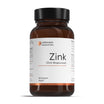
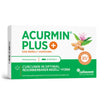
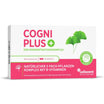

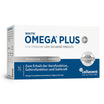
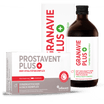
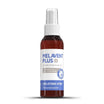
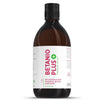
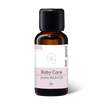
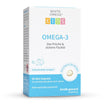
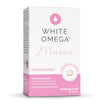
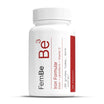
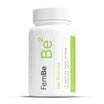
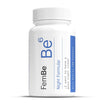
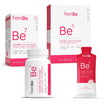
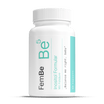



Leave a comment
This site is protected by hCaptcha and the hCaptcha Privacy Policy and Terms of Service apply.